Jeremie Averous's Blog, page 148
July 26, 2012
The Fourth Revolution can make us clever and free again
In the Industrial Age, the world wanted to make us stupid. It wanted to make us be a cog in the well oiled machine of society.
For the first time since centuries the Fourth Revolution gives us the possibility to be clever and free again. But – will be seize this chance?
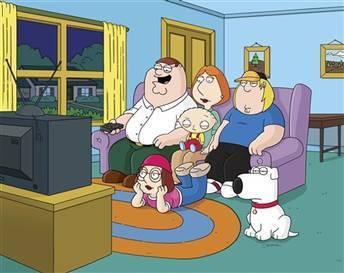
Industrial Age classical image: watching what others have decided for us
There is quite some comfort to passively be told what to do. To avoid taking decisions as they are taken by others. To watch TV all day long, watching what others have decided would be good for us. Relying on ‘specialists’ to decide what we read, eat.
The difficulty of accessing information has vanished. Today at the touch of our fingers we have humankind’s information available.
Will we use it? Will we make the effort to seek information, to find what we need, to decide by ourselves what we want to do, watch, read?
Some individuals have chosen that path. Most have not. It is scary, it requires decision-making, it involves risk and – gosh – failure.
Will we see the majority of people chose the harder way of freedom and choice? It seems like the young generation is much more unconventional than the previous generations. Still the majority will start working in corporations where fitting with the system is a survival skill.
Maybe the ongoing economical crisis that forces more people than ever to be creative in their response to finding ways to live will be considered as a key moment in the emancipation of humankind.
And you, when do you become free again?

July 24, 2012
The world wants to keep us stupid
Yes, the world wants to stifle our creativity. And so many institutions are designed to keep us stupid, subdued, non-creative: the bureaucracy, the educative system… Of course, it is much easier to deal with non creative, dumb people.
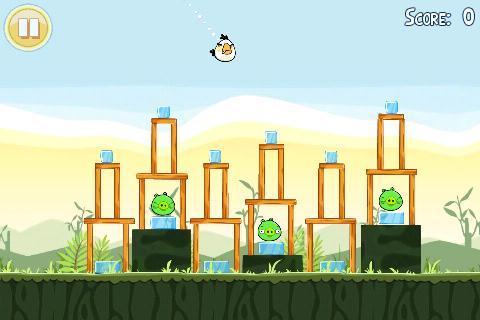
Angry Birds – keeping us busy
We are swamped by things that want to keep us busy, away from the spark of creation. I am always amazed by the number of people spending their day playing on their phone (Angry Birds is of course among the biggest culprit these days).
The world is so nasty – the phone is even called a ‘smart’ phone. Yes it’s smart: it makes us dumb.
Let’s shake the straitjacket put on us by the surrounding institutions and find again our natural creativity. The one we had when we were a child. And when the world did not figure out that we’d better be dumb to be better controlled.

July 21, 2012
Overcome the fear of bringing your creation out to the world
Following our blog post on Lean and accelerating our learning in the Collaborative Age, a particular issue came up. As part of the lean methodology, we propose to go out in the world as early as possible with a ‘Minimum Viable Product’. That is to say, an unfinished product with some basic functionality and lots of bugs. This product could be a book, a painting, a recording, a set of photos, a blog, a website… anything that you are creating with your heart.

Getting out into the light is the hardest
That’s generally at this point of time that Resistance attacks. What? Coming out to the world with an imperfect product? What about my ego, my reputation? Won’t I look ridiculous?
And there we often freak out. Delay. Find all sorts of excuses not to go out with this imperfect product and work to improve it. Worst even, not to anything on the product and just shelve it waiting to be secure enough to show it to the world.
Resistance was already trying to avoid us working on the product or the creation; it is the ultimate battle before it gets to the world; and Resistance does fight it with the back to the brick wall.
Just consider this: you might be somewhat ridiculous this time with this imperfect product; but you will be much more later if you spend much more time trying to make it ‘perfect’ in your eyes and if it remains dull in the eyes of the world. And you won’t be able to forgive yourself if you never bring it out to the world.
Do you want to live in regrets all your life? Just come out with it. And rock on!
And no- you won’t be ridiculous this time anyway. Your tribe will take interest in your new creation and guide you toward making it really fascinating and useful.
Have you anything almost finished on the shelf you never managed to get out to the world? Get it out and start learning! Beat the Resistance!

July 19, 2012
Smart Disclosure and Colored Buttons: Enabling Full Data Availability
Beyond Open Data, there are also troves of data that cannot be made public because they contain personal information.
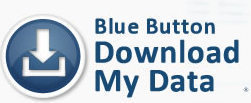
The Blue Button for data download
However it would be useful to have access to this data in certain ways:
for the person concerned, for his/her personal files
anonymously / aggregated by location or through other groups for statistical analysis and other studies
There is an effort ongoing in the US and there starts to be quite a lot of papers on the subject. One of the most complete is “What is smart disclosure?” on O’Reilly. The US governments is producing standards to allow access to this data.

Green Button Data download
This lead the creation of a number of colored buttons depending on the type of data and the type of access.
These standards will certainly spread rapidly across the world as liberating those troves of data becomes an increasing national priority: the wealth of knowledge that will be derived from this data will be huge and I can’t wait to see what incredible advances we’ll see from the analysis of all this data.
Expect those colored buttons to invade your life soon!

July 17, 2012
The Open Data movement: how governments are already transformed by the Fourth Revolution
In May, the Obama administration announced a Roadmap for a Digital Government.

President Obama launches digital government
This comes after many moves in the UK and Canada toward Open Data and changing how government handles data.
The idea is simple – and it implies to redesign completely how data is handled and made accessible inside the government agencies’ data repositories. Data is to be isolated and collected; and Application Programming Interfaces (API) can then be put in place for both government, and also the public, to exploit and make sense of that trove of data.
Some administrations and agencies will resist to this new approach. But the approach is so fruitful and effective in enhancing government’s effectiveness – and allowing citizens to access and find new ways to use the data – that most developed countries are now moving quickly in this direction.
Why will it work? Because the Federal CIO is reporting directly to the President. And because it is such a pressing, necessary need that those governments that will not do it will die of excessively expensive infrastructure to maintain. In the current context of debt crisis it is certainly an excellent economic decision!
Open Data – public data made accessible to the world, is not just a dream. It is driven by need. And it will reveal unforeseen value to the citizens.
If your government is not yet ready to Open Data, tell them they should do it… or lose precious competitive advantage! And be ready for Open Data to be used to enhance significantly your daily life. People will find ways to use it in unexpected forms and will just reveal the treasures hidden in this trove of information!

July 14, 2012
Done is better than perfect: how well done is done then?
Don’t wait until your product is perfect to push the button or you’ll never progress by getting the right feedback. Yet how finished, polished, perfect should be your product before you shoot it to the world? What is actually a ‘minimum viable product’ to follow the words of the Lean Startup Movement?

Are you ready to push the button even if not "perfect"?
There is a little bit of debate on this issue. Is it just a functional product even if it does not look nice? Well, if it’s not attractive and nobody tries it, you’d better add some good presentation.
Is it a product for CEOs? Make sure it looks professional enough.
Is it a nice-looking product that does only part of the work? Here again it depends who you send it to, and what they would expect.
‘Done is better than perfect’ is written on the Facebook walls. It is the motto of the hackers. It’s true. But your product should have at least some of the functionality and look as your prospective clients will expect. Don’t wait forever for the perfect, but make sure what is done works for what you expect it to do. Maybe you should start by analyzing what are the minimum functionality you are aiming for your audience and stick to that as a priority.
In summary, don’t seek to be perfect. Just do the right thing – and just the right thing. And shoot to the world.
Cool. When do you start?

July 12, 2012
You are contributing actively to the enhancement of the world’s knowledge… without even knowing it!
Did you know that you are routinely contributing to the development of the world’s knowledge – directly? Like… more than 10% of humankind in fact?
And we are not speaking here of global utilization of your data to do statistics about your behavior.
No – whenever you are typing a word in reCAPTCHA, these small popup words that you need to type so that the website can be sure you are a human and not a robot, the second word is there to check the spelling of an old book that has been scanned.
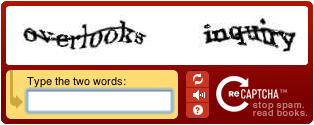
ReCAPTCHA example – the second word is to check the spelling of a scanned word
This is a typical example of reCAPTCHA. And when you type inquiry you actually check the spelling of that word as it was scanned. More detail on this surprising usage of crowd-contribution on this page of the reCAPTCHA from google that explains how it helps digitalize old books.
You can help the process by using this technology on your website (see how to implement reCAPTCHA on your site on this page).
This fantastic video explains how this project came about – and the exciting projects that the originators of the tool now have regarding crowdsourcing translation:
Leveraging the power of crowd-contribution has only the limits set by imagination. Think about how much knowledge the billions of internet users could contribute… and will contribute through the right usage of modern technology. Are you ready to contribute more?

July 10, 2012
Beware! Your life on social networks meshes increasingly with what happens to you in your real life!
Yes, what you are doing in this virtual world of social networks increasingly impacts what happens to you in your real life – because of what people – anybody- can know from your virtual life at the touch of a screen.
And I am not just speaking about dating or meeting with people that you’ve met on a social network. Not even about vendors collecting your clicks and maybe even your location to propose to you products that are ideally suited to your habits and your current situation (which is a bit scary but theoretically should be very practical).
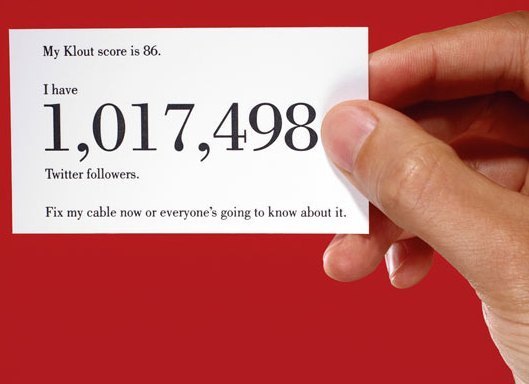
How Klout impacts real life... photo by Garry McLeod in Wired (link in the text)
Do you know there is a lot of controversy regarding Klout. It is a service that supposedly measures your online influence. Of course, there is a bit of controversy about how that’s measured (but then the tool is still “beta”). However the biggest issue is how this unique number that measures influence can be used in real life.
This astonishing paper in Wired shows that even if you don’t know what it is, your Klout score might actually already change your life: it might be looked up by prospective employers or even the hotel clerk (to check if you could really damage their reputation). So you’d maybe better want to know what it is!
A good summary of the issue of the public availability of these indicators can be found in this paper by Jason Falls “The Problems with Social Profiling”.
Of course such a subject unleashes passion: someone computes a score that is publicly available and measures your power of influence or annoyance. This is much more pervading than the recent trend of prospective employers to ask candidates to show them their Facebook page.
The debate on personal data on the internet is now superseded by the debate on those abstract indicators that measure your overall activity – without any hint as to what your activity is. And because these data are available to everyone, increasingly, social network and real life network spaces become intermeshed.
We still need to learn how to benefit from that opportunity while avoiding the main risks. The quest will be long and bumpy. It is unavoidable. The Fourth Revolution is expanding.

July 7, 2012
Why you can’t achieve your dreams alone, especially if they really matter
I went to a series of entrepreneur workshops and, again, and again, the same recommendation came from of the experienced entrepreneurs: don’t follow your dreams alone, focus on getting a team!
This is the single main distinction between successful endeavors and sad failures: the team, the quality of the team and of the support it offers.

Only with the help of the team can you catch the ball!
It might not need to be a team in your company; it can be a team of advisors, mentors, but it is vital to get a team around you to support, encourage, test new ideas…
It certainly need to include your close family.
Plain summary: it is vital to have a team around you to help you take off and catch the ball that you were looking to catch! Alone you won’t be able to do it, you’ll just be stuck to the ground.
And it is not just the case as an entrepreneur. It is the same when you are just pursuing your passion, your purpose.
The more your purpose really matters, the more your own resistance and the world’s resistance will act to suffocate it before it becomes too big. You need a team to help you in this quest. You won’t fight the world alone.
Pam Slim made the point very well on her blog post, your resistance to ask for help is drowning your dreams! Of course it is just one of the tricks of Resistance to impede us to do the real work.
I love Pam’s conclusion:
“If your dreams have meaning, if they are significant and challenging and worth it, chances are, you can’t accomplish them alone.”
Yep. So where’s your team?

July 5, 2012
The Fourth Revolution, leveraging humankind’s forgotten knowledge
The Fourth Revolution fosters a contradiction between cultural unification and diversity. And diversity wins, for sure!
We observe a quick assimilation into a unified world where English is the lingua franca, or so it looks on a first glimpse (actually there are some contradicting statistics there, and English tends to diminish on the net). At the same time the Fourth Revolution makes it easier than ever to read and understand other languages, and even save languages on the brink of being forgotten!

Thanks to the Fourth Revolution, we'll continue to understand this language
We’re all using automatic translation every day; our computers can spell check an incredible number of languages, soon for sure there will be automated translators that will allow us to communicate with others, in the palm of our hands. Most of these tools use the crowd-power: Google translate asks to suggest better translations; users are constantly improving the tools.
And languages on the brink of being forgotten suddenly have more chances to be saved (see the BBC article “Digital Tools to Save Languages“).
I love the quote from the article:
“Everything that people know about the planet, about plants, animals, about how to live sustainably, the polar ice caps, the different ecosystems that humans have survived in – all this knowledge is encoded in human cultures and languages, whereas only a tiny fraction of it is encoded in the scientific literature”
With the widespread recording tools of the Fourth Revolution, the syndrom of the elderly dying in Africa without passing on his knowledge is behind us. The library in the mind of this wise person is not lost any more. From the remotest corners of the world, knowledge is preserved, available, searchable, offering an immense opportunity for us.
I can’t even imagine what we will be able to do with it! And you?




